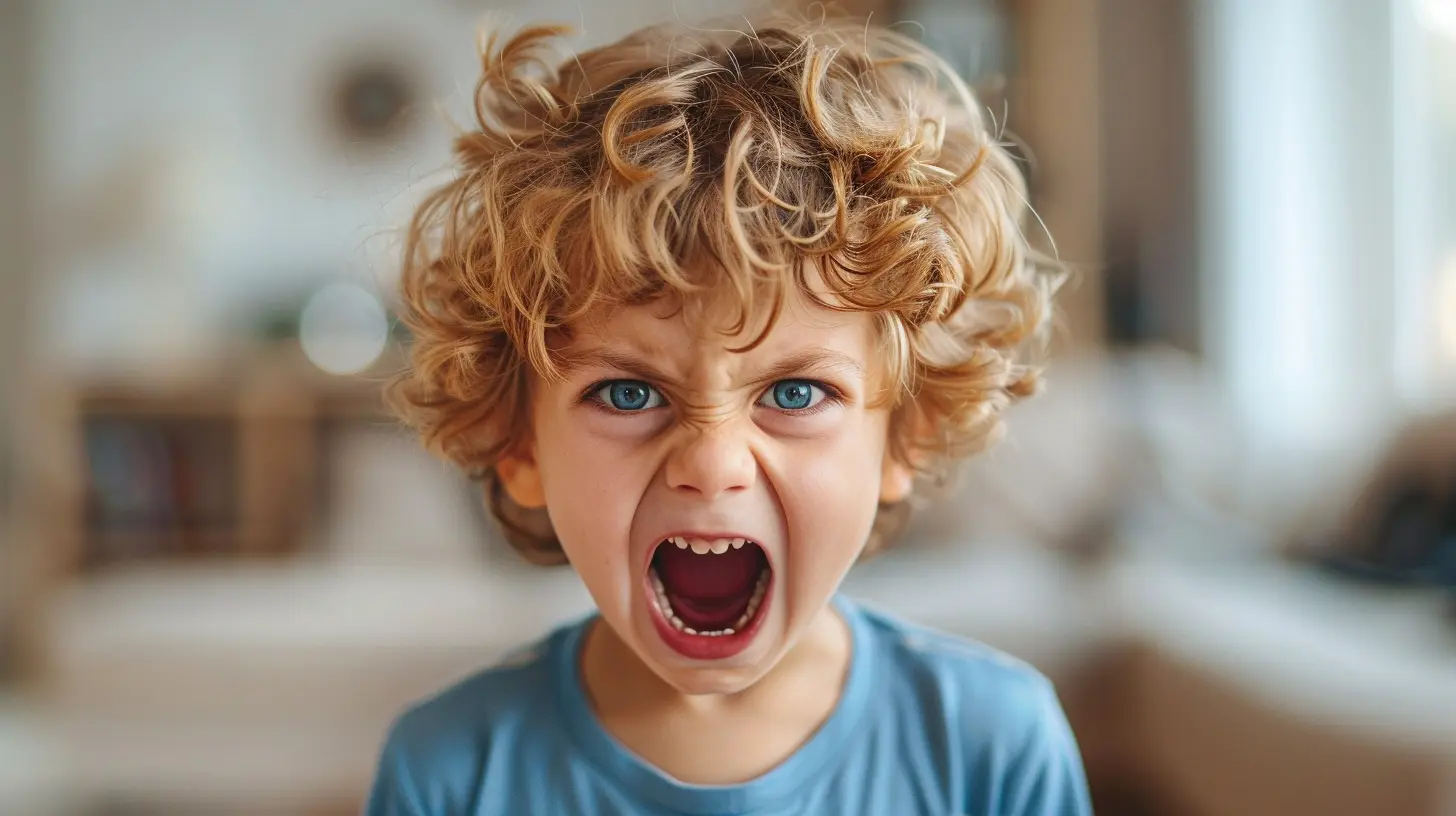How to Strengthen Emotional Regulation in Kids for Long-Term Wellness
1 May 2025
As parents, we want nothing more than to see our kids grow up to be happy, resilient, and emotionally stable. But let's be real—kids experience big emotions, and managing them isn’t something they just magically figure out overnight. Helping them develop emotional regulation skills is one of the most valuable gifts we can give them, shaping their long-term well-being in ways that benefit their mental health, relationships, and overall happiness.
So, how do we teach emotional regulation to kids in a way that actually sticks? Let's dive into this important topic with practical, real-life strategies that can help your child manage their emotions like a pro.

Why Emotional Regulation Matters
Emotional regulation is the ability to manage emotions in a healthy and constructive way. It’s what helps a child bounce back from frustration instead of melting down, handle disappointment without lashing out, and express feelings without bottling them up.When kids learn to regulate their emotions, they develop:
✅ Better relationships – They communicate more effectively and build stronger friendships.
✅ Stronger mental health – They're less prone to anxiety, stress, and emotional outbursts.
✅ Improved focus and learning – A well-regulated child can stay on task and problem-solve effectively.
✅ Increased resilience – They learn to cope with life’s ups and downs without feeling overwhelmed.
Now, the big question—how can we help kids develop these skills? 
1. Model Emotional Regulation Yourself
Kids are like little mirrors—they reflect what they see. If they watch you lose your temper over spilled juice or traffic jams, they’ll assume that’s the way emotions should be handled.Instead, try demonstrating calm responses to challenges. For example, if you’re upset, verbalize your emotions:
"I’m feeling frustrated right now, so I’m going to take a deep breath before I respond."
By showing them how to manage emotions in real time, you’re giving them a powerful, real-world lesson they’ll internalize. 
2. Teach Them to Identify Their Emotions
Have you ever asked your child what’s wrong, and they just scream, “I DON’T KNOW”? That’s because kids often struggle to identify what they’re feeling.Help them name their emotions by introducing simple words like:
- Happy
- Sad
- Angry
- Frustrated
- Excited
- Worried
Use tools like emotion charts or books about feelings to make it fun. The more they understand their emotions, the easier it becomes to regulate them. 
3. Encourage Deep Breathing and Mindfulness
Breathing exercises are a game-changer when it comes to calming the mind. Teach your child simple techniques, like:- Balloon Breathing – Inhale deeply like you're inflating a balloon, then slowly exhale as if you're letting air out.
- Belly Breathing – Place a stuffed animal on their belly and have them watch it rise and fall as they take deep breaths.
Mindfulness activities, like focusing on their senses (What can you see, hear, smell, taste, and feel?), also help kids center themselves when emotions run high.
4. Validate Their Feelings (Even When They're Overreacting)
A meltdown in the middle of the grocery store? Totally overwhelming. But telling your child to "stop crying" or "get over it" won’t help.Instead, validate their feelings:
"I see that you're really upset because we can’t buy that toy right now. That must feel frustrating."
Acknowledging their emotions helps them feel understood, which makes it easier for them to calm down.
5. Teach Them Healthy Ways to Express Emotions
Bottling up emotions leads to explosions later. Teach your child safe and constructive ways to express themselves, like:- Using words – Encourage them to say "I'm feeling angry because…"
- Drawing or journaling – Sometimes writing or sketching it out helps them process emotions.
- Physical activity – A simple dance session or a run outside can help release pent-up feelings.
By offering healthy outlets, they’ll develop habits that prevent emotional outbursts.
6. Establish Comforting Routines
Routine provides a sense of security, and that stability helps regulate emotions. Simple, predictable schedules can reduce anxiety and emotional instability.Try implementing:
- Morning and bedtime routines – A structured start and end to the day set a calm tone.
- Scheduled downtime – Overstimulation can overwhelm emotions, so quiet time helps reset their minds.
- Consistent rules and expectations – When kids know what to expect, they feel more in control of their emotions.
The more predictable their world feels, the easier it is for them to stay emotionally grounded.
7. Use Positive Reinforcement
Praise your child when they successfully regulate their emotions:"You handled that so well! I saw that you took deep breaths when you started feeling frustrated—great job!"
Positive reinforcement encourages them to repeat those behaviors. Over time, self-regulation becomes second nature because they associate it with positive emotions and self-pride.
8. Encourage Problem-Solving Skills
Instead of instantly fixing every issue for your child, guide them through problem-solving. Ask questions like:- "What do you think we can do to make this better?"
- "How can we fix this together?"
Helping them develop critical thinking skills will make them more confident in handling emotional challenges on their own.
9. Teach the Power of Taking Breaks
Sometimes, emotions get too big, and that’s okay! Teach your child that taking a break is not a punishment—it’s a strategy.Have a designated cool-down spot where they can go when they feel overwhelmed. This could be a cozy chair, a bean bag, or even just a quiet corner with soft lighting.
You can also introduce calming activities like:
- Reading a book
- Coloring
- Listening to calming music
When they learn to recognize when they need a break, they develop self-awareness and emotional control.
10. Be Patient and Consistent
Let’s be honest—emotional regulation takes time. Your child won’t master it overnight, and setbacks will happen. The key? Consistency and patience.Each time you guide them through an emotional challenge, you're helping them build a skill they'll carry for life. Celebrate small victories, encourage progress, and remember—you’re shaping a future adult who will be emotionally strong and capable.
Final Thoughts
Strengthening emotional regulation in kids isn’t about suppressing emotions—it’s about teaching them how to handle emotions in a healthy way. When children master this skill, they develop confidence, resilience, and emotional intelligence—all of which contribute to their overall well-being.So be their guide, their cheerleader, and their example. With your support, they’ll grow into emotionally strong individuals who can face life’s challenges with confidence.
all images in this post were generated using AI tools
Category:
Childrens HealthAuthor:

Tara Henson
Discussion
rate this article
4 comments
George McGuffey
Happy kids, happy parents—let emotions flow!
May 13, 2025 at 3:11 PM

Tara Henson
Absolutely! Encouraging emotional expression in kids fosters resilience and strengthens parent-child bonds, leading to lasting wellness.
Pamela Brown
Empowering kids for a brighter future!
May 10, 2025 at 4:59 PM

Tara Henson
Absolutely! Empowering kids with strong emotional regulation skills lays the foundation for a healthier, more resilient future.
Zara McGinn
This article offers valuable insights and practical strategies for fostering emotional regulation in children. Thank you for sharing!
May 9, 2025 at 3:59 PM

Tara Henson
Thank you for your kind words! I'm glad you found the insights helpful!
Jace Reilly
This article sounds incredibly insightful! I'm curious about practical activities or exercises parents can incorporate daily to help reinforce emotional regulation in kids. Are there specific strategies or tools that have shown the best results over time? Excited to learn more!
May 8, 2025 at 4:56 AM

Tara Henson
Thank you for your enthusiasm! Incorporating daily routines like mindfulness exercises, emotion check-ins, and role-playing scenarios can be very effective. Tools such as emotion charts and feeling journals also help kids express and manage their feelings. Excited to share more!



